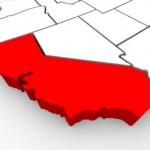You would think that finding public records would be extremely easy now that we have the Internet and mobile devices. Hop online, search for the record you’re looking and presto! Only that’s not how it works. Unfortunately, most access to public records involves a government office or agency and the government does not have a very good track record when it comes to building websites. In all fairness though, public records are incredibly fragmented. There are literally thousands of different local offices that are tasked with storing, maintaining and providing access to all sorts of crazy different types of public records. This is why the process of getting the public record you want can be so difficult. PRStore.com exists to try and help make that process a little easier. We discuss the current regulations and news involving public records. We also provide access to an online public records search service to help you find the information you’re looking for.
 How to request public records in Arizona
How to request public records in Arizona
Citizens in Arizona can request most types of records and data that are used or collected by the state and local governments. This includes virtually every public body down to a very small local council or officer. All you have to do is make sure that you direct your request to the right entity.

California will look at Brown and Public Records Acts
California is considering amending their constitution to require local governmental bodies in the state to shoulder the cost of making meeting locations, times and notes and other records publicly available.

Texas gun ownership, concealed carry and public records
Texas has the honor of having a large percentage of its population licensed to carry a concealed weapon. The state occasionally revises its gun laws and many people often wonder if there is such a thing as a public registry of gun owners.
 How to access Texas public records
How to access Texas public records
Texas has very transparent public records laws, but getting the information can be somewhat challenging. Public records are very fragmented in the state and are typically maintained by local government entities.
